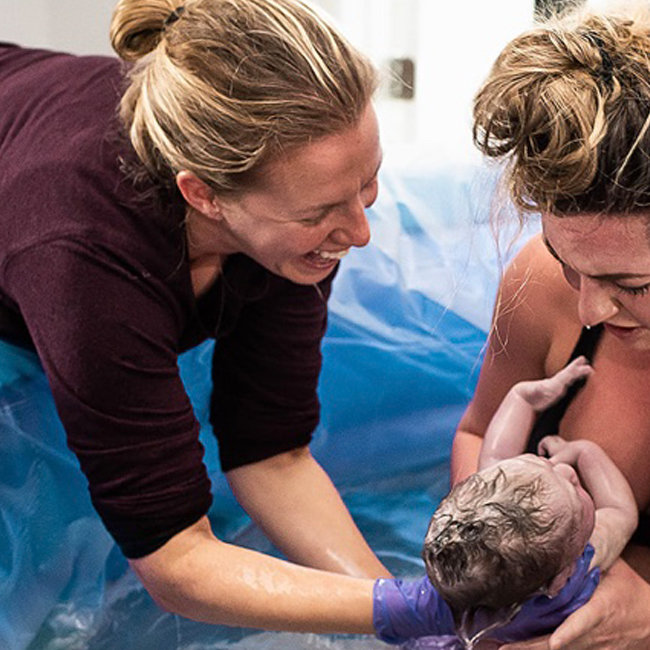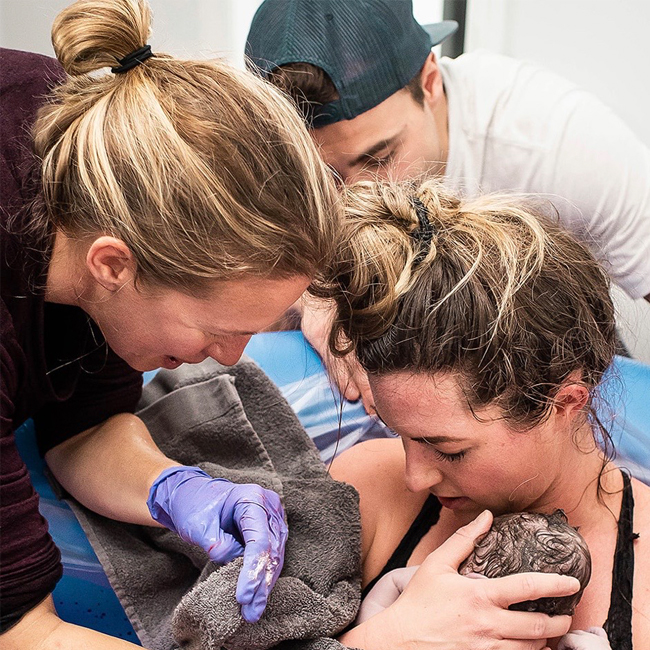If you’ve chosen to work with a midwife for your pregnancy and birth, you’ve likely chosen this in hopes to have a very personal attachment relationship with your provider. There are many wonderful OB’s out there, so no disrespect to them, but because of the system they are working with and the amount of births they have, they are often limited to very quick visits – get in, get your testing done, go home. The midwife standard of care (for the most part) is based around building a relationship. I actually had a friend say that with the longer meetings she found it odd that the midwife was simply asking questions about her life and trying to get to know her. But for me, that’s what I love. If I am going to have someone come into my home (you can also birth in the hospital or birth centre with many midwives, depending your location), and witness one of the most vulnerable moments of my life, I want them to know about me, my family, my hopes, and all the things. And for that matter, I also want to know about them!!
That being said, if you’re interviewing many midwives, it’s nice to have some standard questions to go in with. It’s also important for you to know ahead of time what you want, and what’s important to you. Everyone will be different. Usually midwives expect that you have worked to become informed already – they are also there to teach you, guide you, answer questions, and they know you’ll continue to learn throughout your pregnancy – but, having a rough idea of where you stand going in is very helpful when making the best decision for you.

Here are some of my usual questions when I’ve interviewed midwives:
About the Midwife:
- Are you a Certified Nurse Midwife (this is relevant in America [and my preference], but it is not a necessary question in Canada)?
- How many births have you attended?
- What is your transfer rate (of interest if you’re planning a home birth or birth centre birth)? What do those transfers look like?
- What is your C-section rate (question can be dependent on answer from previous question)?
- What items do you bring to a birth (if birthing outside the hospital)?
The “What If” Questions:
- What would you do in case of haemorrhaging?
- What would you do if baby needed oxygen or resuscitation?
- What would you do for shoulder dystocia or cord prolapse?
- How do you decide when a mother should transfer to hospital? Can you attend a transfer?
Support for My Birth:
- How many births do you attend in a month? What are the chance you won’t be available for my birth (and what do you do in that scenario)?
- How much past my guess date (due date) are you comfortable with me going over and still working with me?
- Will you assist in breech births?
- Will you assist in twin births?
- Do you rent out birth pools?
- At what point in pregnancy will you come to my house for appointments (if at all)?
- Do you support delayed cord clamping, skin-to-skin, and breastfeeding?
- What does your postpartum care look like?
More ‘Get To Know You’ Stuff:
- Do you have kids? What were your births like?
- Tell me about you!
This list could grow and grow depending what’s important to you (think scheduling, payment plans, testing that you want to avoid). And it can also shrink – often answers to previous questions will answer future ones. And more than anything, each answer gives you a feeling for their energy around birth. Does this feel right? Will this be a good fit for your family and this birth? These are questions you can only ask your own intuition.

Good luck choosing a health care provider for you!
